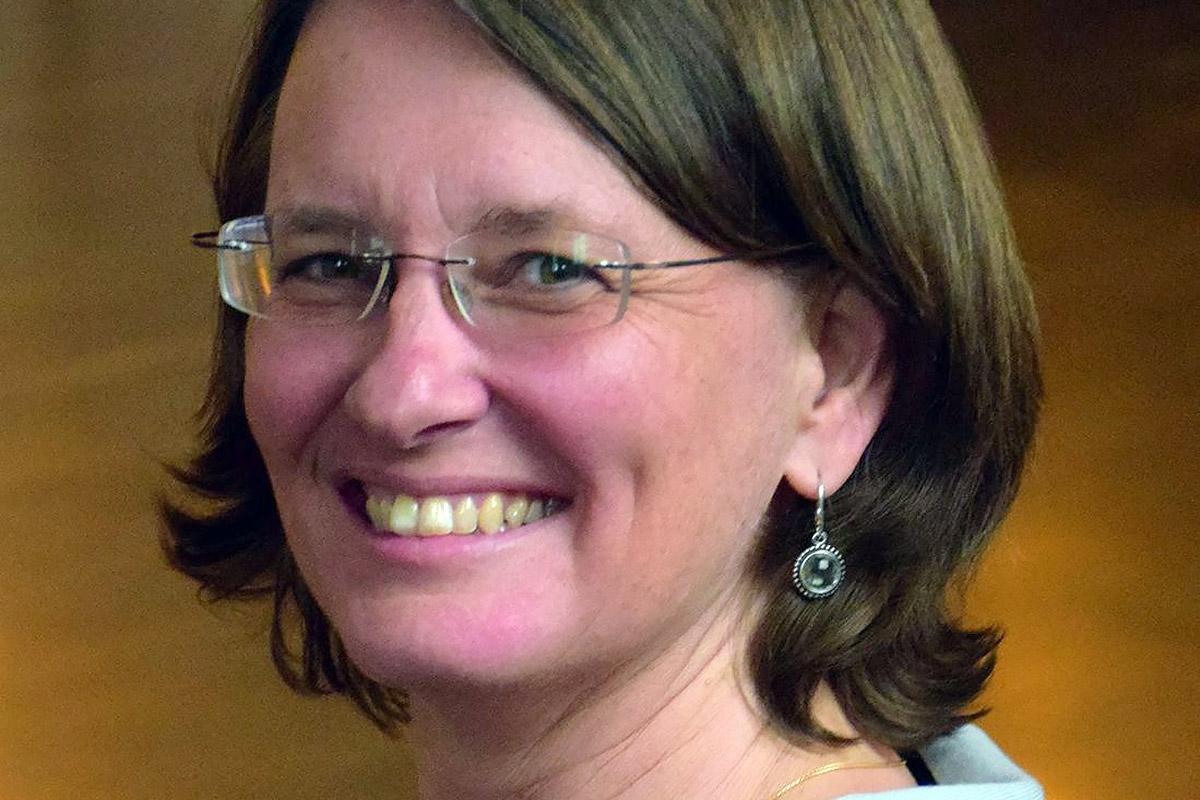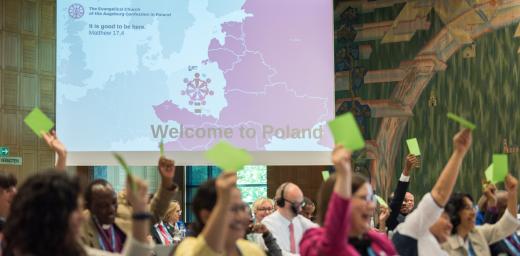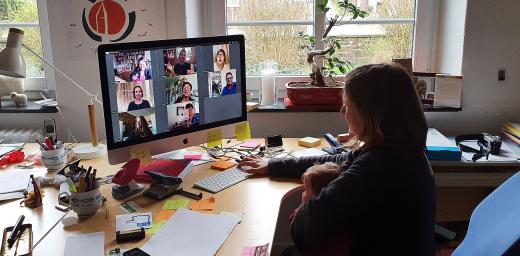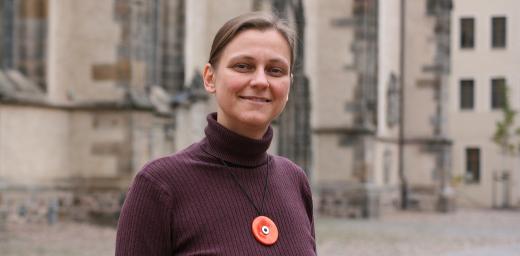Possibilities for efficient and qualified theological education

Rev. Dr Gabriele Hoerschelmann. Photo: Private
Interview with German theologian Gabriele Hoerschelmann
(LWI) - The Lutheran World Federation (LWF) has begun working toward implementing a Twelfth Assembly resolution calling on the communion and its member churches to develop a common strategy for theological education and formation by 2020. Lutheran World Information interviewed German theologian Rev. Dr Gabriele Hoerschelmann, Evangelical Lutheran Church in Bavaria, on what this entails for pastors and institutions in Germany.
How does the Evangelical Lutheran Church in Bavaria equip pastors for work in the church so that there is a balance between theology and the local context?
In Germany, theological education takes place in two phases. The first step is a degree course at the university, where students study old languages [Latin, Hebrew and Greek], Old Testament, New Testament and church history, mission theology, practical theology, and theories of Christian education for about five years. This is followed by the second phase, a mandatory two-and-a-half-year internship with a parish. Under the supervision of a senior pastor, the vicar is introduced to the practical aspects of parish work including worship services, funerals, baptism, counseling and other duties. In Bavaria, this includes teaching in state schools as pastors are taking up this duty alongside teachers. It also incorporates the so-called “preachers’ seminary” (Predigerseminar), where the vicars meet for one or two weeks and reflect on their practice from the parish. After passing an exam and the assignment in the congregation one will then be ordained.
Another learning opportunity is the continuous formation in a so-called “pastoral college” (Pastoralkolleg) to accompany pastors during their professional years up to retirement with courses and seminars on practical work for new inspiration, spiritual impulses, and to facilitate sharing with colleagues. I have really come to appreciate this model, especially because time and resources are set aside by the church to make sure pastors are free to take those courses.
I saw the need for this kind of continuous formation, because pastors who wanted to develop their professional expertise could only do it using their holiday time and own resources.
When I myself taught at the Lutheran Theological Seminary in Hong Kong (2004-2015), I saw the need for this kind of continuous formation, because pastors who wanted to develop their professional expertise could only do it using their holiday time and own resources.
What are the challenges and opportunities for ministerial formation in your context Bavaria, and Germany as a whole?
One of the challenges is the international horizon, and this is becoming increasingly important in a more and more globally connected world. German cities are becoming more multicultural compared to 10 or 15 years ago. I’m often not sure how well prepared our pastors are to address this intercultural situation in which they suddenly find themselves. There is little experience in living together, sharing also about different rituals, customs of different cultures and understanding other cultures. I’m sure that in the next decade or so, pastoral work skills will need to take into account how to integrate people from other countries in congregations and how to be more inclusive societies that can address the intercultural problems and tensions that are arising.
How are you addressing these challenges now?
One of the ways churches are addressing this is by setting up offices for other language congregations (“Gemeinden Anderer Sprache und Herkunft”). In a city like Nuremberg, you will find Chinese, Ghanaian and Korean congregations whose members are not necessarily Lutherans but Baptists, Methodists, Presbyterians and so forth. Therefore it is a challenge firstly to find out who is there, and secondly, to offer them a home in the local German congregation, which I see as a very good beginning.
But in order to address this and to deal with people from different cultures, our pastors need to be much more introduced to how to live together as the people of God with different languages and from different cultural backgrounds. While we may have the resources and capacity, and we are reaching out, our pastors need to be more equipped for this intercultural interaction.
From your participation in the LWF roundtable on Ministerial Formation, what did you find inspiring, surprising, and why?
What I found important for our future work is how the LWF will strengthen its role to facilitate more networks on theological education in the sub-regions. It is important to connect the different seminaries, their churches and partners in order to plan and to safeguard theological education for churches in a specific region.
We were sad to hear about seminaries that have collapsed due to finances and other reasons in different parts of the world. The example of the Mekong Mission Forum in Asia is a helpful model, where different partners in the south-east Asian region meet on a regular basis to discuss ways and find solutions for theological education for students coming from the Mekong countries like Myanmar, Laos, Vietnam, Cambodia and Thailand.
Especially for small churches, it can be important to identify an educational hub in the region where they can send their students of theology instead of trying to establish their own small seminaries with only few students.
Especially for small churches, it can be important to identify an educational hub in the region where they can send their students of theology instead of trying to establish their own small seminaries with only few students. Both the finances and the quality of education may not be sufficient to give future pastors a really good theological foundation for their future work in the church. We need to explore together how we can in an efficient and qualified way offer theological education in each of the LWF sub-regions through a seminary or school that can be used by various churches.
Coming from many conferences in regard to the reformation jubilee this year, another aspect comes into focus, and that is to further support the teaching of Lutheran identity so that the Lutheran congregations around the world are clear in their message. However, we need to be ecumenically open. Lutheran theological seminaries do well by being open to students from other Christian traditions. In such places theology can be studied in a most lively way and engaged environment.
Rev. Dr Gabriele Hoerschelmann is the director of Mission EineWelt, the Center for Partnership, Development and Mission of the Evangelical Lutheran Church in Bavaria, Germany. The center partners with the LWF in theological education support for churches and their institutions around the world.





